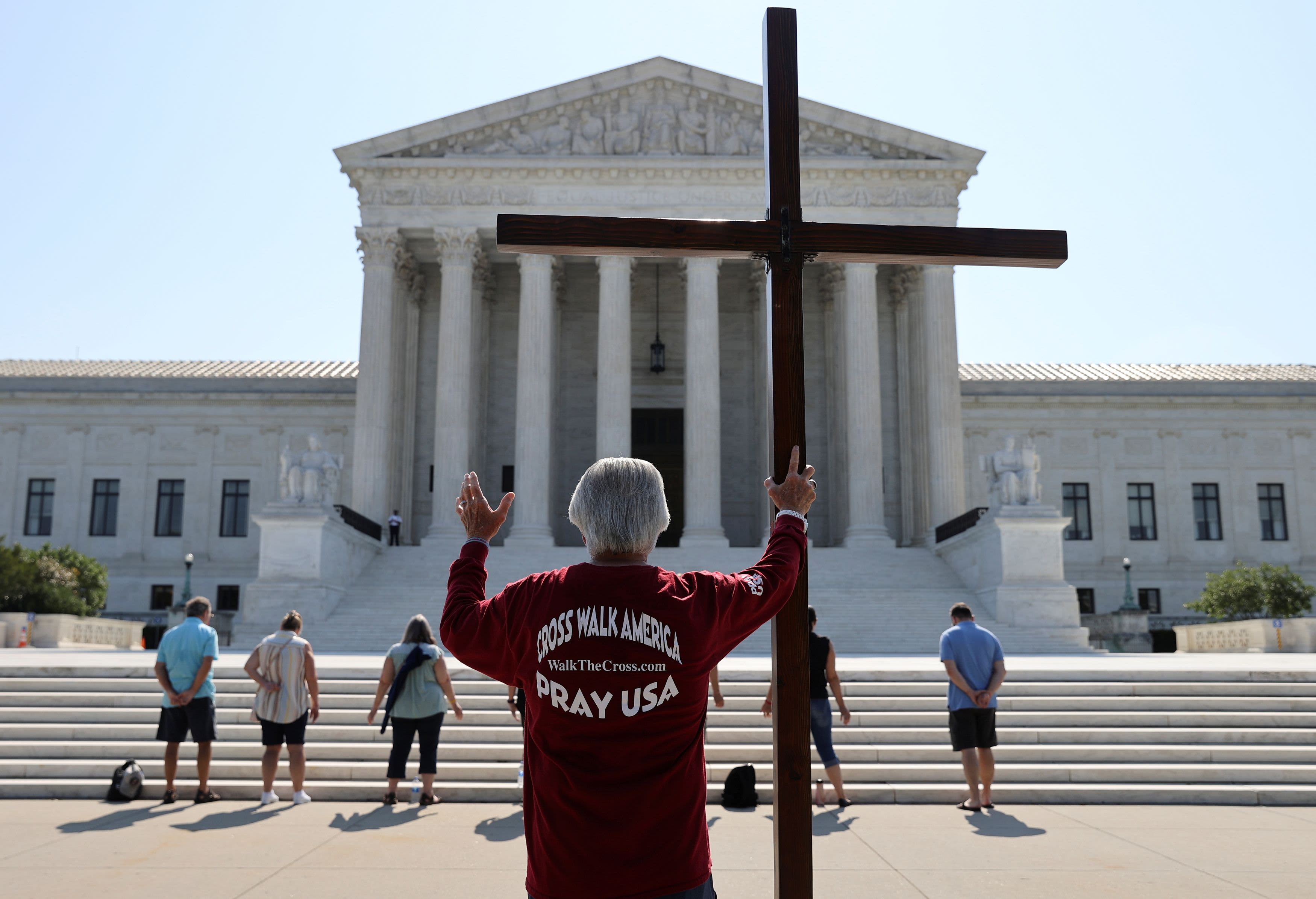The Supreme Court on Wednesday voted 7-2 to uphold Trump administration rules to allow employers with sincere moral or religious objections to deny employees access to free contraceptive coverage.
The rules broadened a carve-out to the contraceptive coverage mandate included in the Affordable Care Act, the health-care overhaul commonly known as Obamacare. According to government estimates, the religious exemption would lead to possibly as many 125,000 women losing their coverage.
Justice Clarence Thomas, who authored the majority opinion, wrote that the Trump administration “had the authority to provide exemptions from the regulatory contraceptive requirements for employers with religious and conscientious objections.”
“The only question we face today is what the plain language of the statute authorizes,” Thomas wrote. “And the plain language of the statute clearly allows the Departments to create the preventive care standards as well as the religious and moral exemptions.”
Thomas’ opinion was joined by Chief Justice John Roberts and Justices Samuel Alito, Neil Gorsuch and Brett Kavanaugh. Justice Elena Kagan wrote separately to explain her vote with the majority, and was joined by Justice Stephen Breyer. Justices Ruth Bader Ginsburg and Sonia Sotomayor dissented.
The Supreme Court challenge came after Pennsylvania and New Jersey had successfully halted implementation of the regulations in the lower courts. The states argued that the federal government failed to follow the legal protocol known as notice-and-comment in creating the rules.
The states said that if the rules went into effect, they would be saddled with increased costs to run their taxpayer-funded family-planning programs.
A federal district court sided with the states and prevented the new rules from going into effect. That decision was affirmed by the 3rd U.S. Circuit Court of Appeals, based in Philadelphia.
The Trump administration, via the Department of Justice, and the Roman Catholic nonprofit Little Sisters of the Poor, asked the Supreme Court to reverse those rulings.
The Justice Department told the court that the exemptions are required by the 1993 Religious Freedom Restoration Act, which prohibits the government from substantially burdening religious exercise unless it can show that it is using the “least restrictive means” to further a compelling government interest.
Thomas declined to say whether the Trump administration’s rules were required by the RFRA.
“In light of our holding that [Obamacare] provided a basis for both exemptions, we need not reach these arguments,” he wrote.
In a concurrence, Alito said that he would have found that the RFRA required the exemptions, noting that by failing to do so, the majority left room for continued challenges. Alito’s concurrence was joined by Gorsuch.
“We now send these cases back to the lower courts, where the Commonwealth of Pennsylvania and the State of New Jersey are all but certain to pursue their argument that the current rule is flawed on yet another ground,” he wrote. “This will prolong the legal battle in which the Little Sisters have now been engaged for seven years — even though during all this time no employee of the Little Sisters has come forward with an objection to the Little Sisters’ conduct.”
Kagan, joined by Breyer, wrote that she also foresaw additional litigation — and that it was quite possible that the administration would lose.
“I question whether the exemptions can survive administrative law’s demand for reasoned decisionmaking,” Kagan wrote. “That issue remains open for the lower courts to address.”
Kagan wrote that, on that front, the exemptions “give every appearance of coming up short.”
The application of the exemptions to publicly traded companies and to “those without any religious need for it” raised questions about whether they were reasonable, Kagan wrote.
Pennsylvania Attorney General Josh Shapiro said in a statement that “this fight is not over.”
“Our case was never about requiring religious groups to provide contraception — organizations like the Little Sisters are already exempt,” Shapiro said. “Our case is about an overly broad rule that allows the personal beliefs of CEOs to dictate women’s guaranteed access to contraceptive medicine.”
Ginsburg, joined by Sotomayor, slammed the court’s decision in dissent, writing that in the past, the court had “taken a balanced approach, one that does not allow the religious beliefs of some to overwhelm the rights and interests of others who do not share those beliefs.”
“Today, for the first time, the Court casts totally aside countervailing rights and interests in its zeal to secure religious rights to the nth degree,” Ginsburg wrote.
A White House spokesperson did not immediately respond to a request for comment.
The cases are Donald Trump v. Pennsylvania, No. 19-454, and The Little Sisters of the Poor Saints Peter and Paul Home v. Pennsylvania, No. 19-431.
In a separate case, the court ruled 7-2 on Wednesday in favor of two religious schools that argued they should not have to face job discrimination lawsuits brought by ex-teachers.
